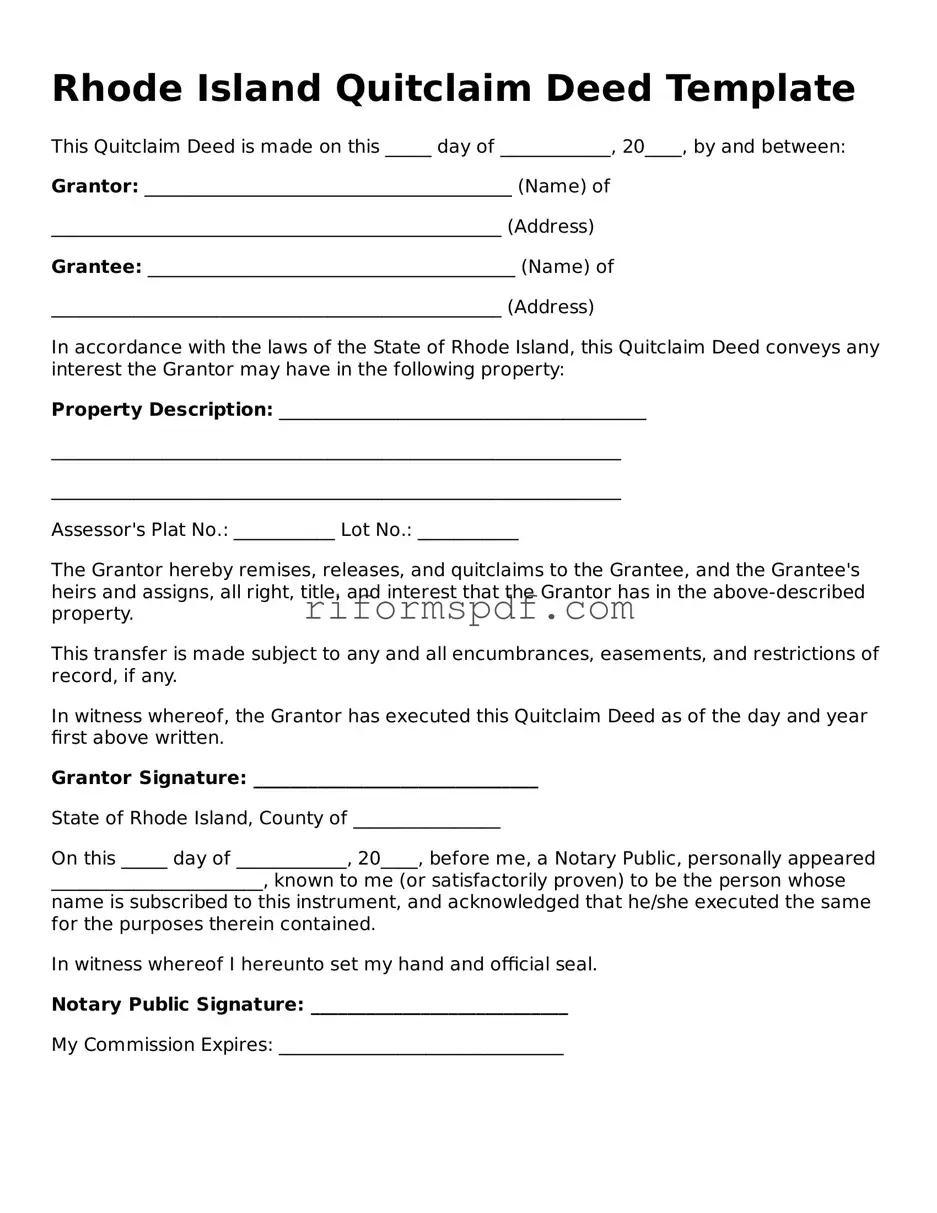Printable Quitclaim Deed Form for Rhode Island
A Rhode Island Quitclaim Deed is a legal document that allows a property owner to transfer their interest in a property to another party without making any guarantees about the title's validity. This form is often used in situations where the parties know each other well, such as family transfers or divorces. Understanding how to properly use and complete this deed can help ensure a smooth transfer of property ownership.
Launch Editor

Printable Quitclaim Deed Form for Rhode Island
Launch Editor
Finish the form now and be done
Edit Quitclaim Deed online and skip the paperwork.
Launch Editor
or
⇓ PDF Form
